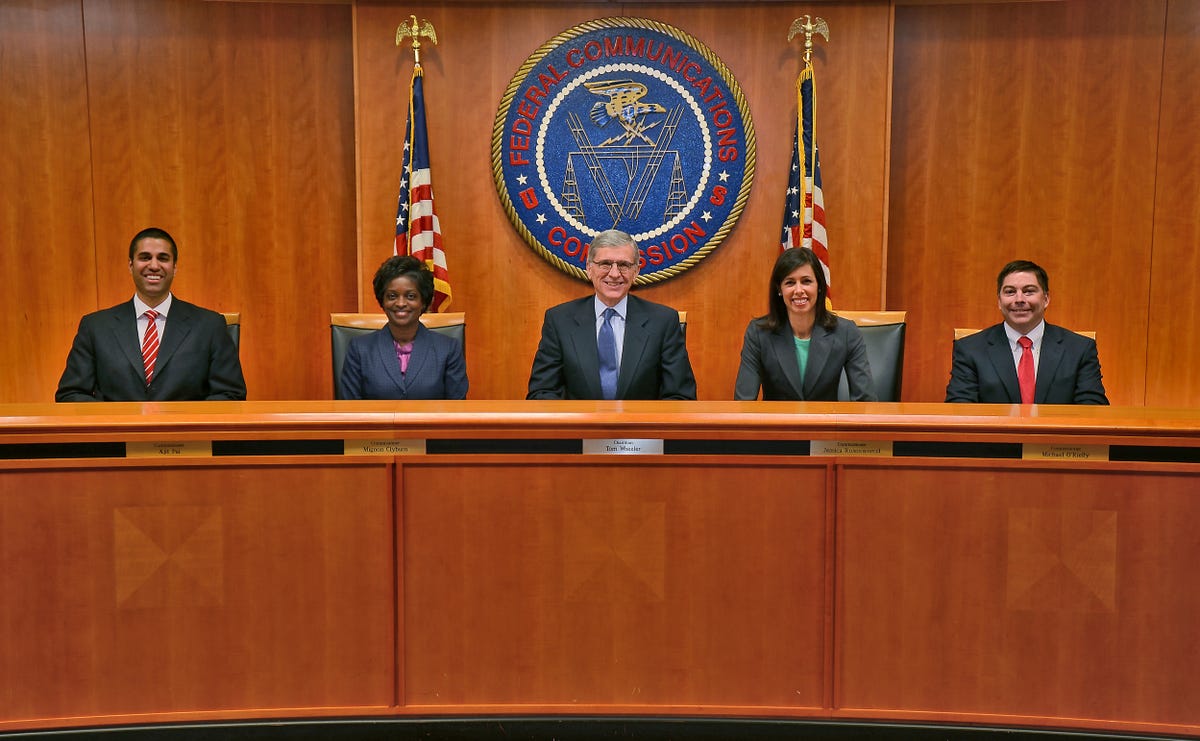
FCC
The Federal Communications Commission isn’t making it easy for TV broadcasters to do business. But perhaps that is the point.
On Monday, the FCC voted and approved two orders that change how broadcast stations share resources and how they can jointly negotiate retransmission agreements with paid TV providers. Some industry insiders suspect that the FCC may be choosing to implement these rules now as a way to encourage TV broadcasters to participate in the agency’s upcoming incentive spectrum auction, which will take unused broadcast TV spectrum and sell it to wireless broadband providers.
“This looks like a move that is entirely designed to drive more spectrum for the incentive auction,” said one financial analyst covering the telecom and media markets, who didn’t want his name used. “The FCC has been beating up on broadcasters on these issues for a while. And it looks like the reason they’re doing it is to make things really difficult for these guys so that they’ll sell their spectrum.”
At a press conference after the FCC meeting on Monday, FCC Chairman Tom Wheeler called such claims of bias “baloney.” He said that the new media ownership and retransmission rules are meant to protect consumers. And he said the rules are “a win for competition, but more importantly, it is a win for common sense.”
How the new rules might affect the spectrum auction
In the first order, the FCC voted unanimously to prevent TV broadcasters from coordinating retransmission-consent negotiations with two or more local TV stations in a market. The commission said it was preventing such practices to ensure broadcasters negotiate in good faith.
The second order prohibits TV broadcasters from teaming up to sell advertising, a practice that broadcasters say allows them to share operating costs so that they can invest more in local programming. Wheeler said that ending this practice is closing a loophole that has allowed major media groups to circumvent media ownership rules.
The new rules, which the NAB, the broadcasters’ lobby group, calls “arbitrary and capricious” as well as “a punitive crackdown on local TV stations,” come at a time when the FCC is trying to get TV broadcasters to give up their wireless spectrum so that it can be auctioned off for wireless broadband services. The agency is currently crafting the rules for the so-called incentive auction, which is scheduled to take place in 2015.
So far, details of how the auction will work or how TV broadcasters will be “repacked” or moved to make room for broadband service providers have not been made available. Still, Congress has made it clear that the auctions must be voluntary. In other words, TV broadcasters can’t be forced to give up spectrum for the auction. But broadcasters say they are feeling threatened by the FCC’s latest actions.
NAB President Gordon Smith has not gone so far as to accuse the FCC of deliberately trying to coerce broadcasters to give up spectrum. But he said that the FCC’s recent moves on tightening retransmission rules and the media ownership rule has likely had the opposite effect, he told industry publication Broadcasting & Cable in an interview published Monday.
“I would hope there was no connection,” he said. “But among broadcasters it is having the opposite psychological impact than what the FCC may have hoped, if that is their predicate. Broadcasters fight among themselves as a broadcast family, but when the neighbor starts throwing bricks through the window, the family unites. And I think the psychology of what they perceive to be going on that is hostile to broadcasting is having the opposite impact of what the FCC might have intended.”
Rick Kaplan, executive vice president of strategic planning at NAB, said something similar last week at the Competitive Carrier Association conference. He said that there is a significant amount of distrust among broadcasters toward the FCC, which could hinder participation in the upcoming auction.
“The recent order circulated by the chairman (and since passed by the commission) is threatening the trust that broadcasters may have in the process of developing the incentive auction,” he said in an interview on the sidelines of the conference.
He said that in order to ensure robust participation, the FCC needs to create trust. He said one way to do this is to show broadcasters that the FCC values their business.
“The FCC needs to show the broadcast industry that there is a commitment on the part of the agency that they believe in the future of broadcasting,” he said.
He added this might include coming up with a National Broadcast Plan that outlines the future for broadcasting, much like the agency developed a road map for broadband in the National Broadband Plan issued in 2010. Multicast mobile TV and the emergence of 4K TV broadcast are just a few examples of new technologies coming down the road that could be part of such a plan.
“Right now, the relationship is pretty frayed,” Kaplan said. “You have a lot of broadcasters looking squirrel-eyed at the FCC right now. There is a lot of work that needs to be done to create some trust.”
Chairman Wheeler may try to address some of these issues next week at the broadcasters’ annual NAB convention in Las Vegas. He is a keynote speaker at the conference on Tuesday morning, April 8. CNET will be there to cover his remarks.



